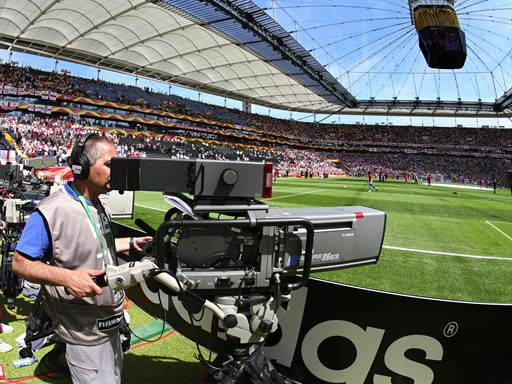By Samindra Kunti in Brussels
January 13 – Eleven Sports Group CEO Marc Watson has said that the creation of a European Super League would not bring more commercial money from broadcasters into the football market.
Speaking in the Belgian capital at a La Liga event, Watson said: “The current ecosystem is quite effective. A European Super League is not going to be driving much more value to the market. Big domestic games are probably the most important of all. From a broadcaster’s point of view, it’s the very big domestic competitions and matches, which tend to be the most important and tend to drive the most value.
“There is a real value in scarcity. One of the values generated by the Champions League is the fact that some of these big clubs don’t play each other week in, week out, (and) that when they do play, it’s a special occasion. It’s often a knockout event by that stage (of the competition) as well, and that creates a lot of value.”
“I’m not saying that the new format, a Super League, wouldn’t take money. I’m saying it wouldn’t create an exponential amount of new money coming into the market.”
Watson questioned the financial benefits of a future European Super League, but said that as a broadcaster there is always interest in a new product, even if the money in the market is limited. Watson: “A broadcaster is always interested in new properties but the value of sports rights is capped. There is no huge pot waiting to be unlocked.”
Union St Gilloise chairman Alex Muzio argued that the focus should be on the redistribution of broadcast revenue in a more equitable way, warning that the inequality in the European game and the creation of a European Super League endanger competition in the long run.
Muzio’s club have been a positive disruptor of the competitive balance in the Belgian top flight, challenging for the league crown last season and maintaining their fine form this campaign, but Muzio said that even a rising club like Union struggle to compete because of a lack of redistribution at the top of the game.
“The model is too biased at the top. The teams in the Champions League and the big clubs are getting too much money and it is not getting redistributed. We have a big problem. Some clubs – like Bayern Munich – win relentlessly. The UEFA money has become so enormous and the other team in the league can’t compete. We all want competition,” said Muzio.
Last season, Munich won the Bundesliga title for a 10th time in a row. In Belgium, Brugge has become the dominant club enjoying the benefits of their consecutive Champions League. They will play Benfica in round of sixteen of the Champions League whereas Union will be Belgium’s representative in the knockout phase of the Europa League.
Contact the writer of this story at moc.l1745178376labto1745178376ofdlr1745178376owedi1745178376sni@i1745178376tnuk.1745178376ardni1745178376mas1745178376

